Choosing a Content Management System (CMS) is an important decision that can have huge repercussions for your website. There are a number available, each with their own pros and cons, and fanatical fanbases pulling for their chosen platform. That being said, there are two platforms that stand out among the pack that can be directly compared: WordPress vs Joomla.
Both platforms are renowned for their ease-of-use, extensive customization opportunities, and active communities. While WordPress and Joomla have their respective pros and cons, they can both be employed to build modern, feature-filled sites – so how are you supposed to choose which one is right for you? 🤔
Don’t worry! We’re here to help you by comparing both platforms in four adrenaline-filled rounds (we might be exaggerating a bit here) to determine which one reigns supreme. Without further ado, let’s get started with WordPress vs Joomla!
WordPress vs Joomla: a 4-round comparison
The basic difference between WordPress and Joomla is that Joomla started out as a CMS meant to serve portal-like websites, while WordPress was originally a blog-focused platform. These days, however, both WordPress and Joomla are perfectly capable to run any type of website.
From a technical point of view, both WordPress and Joomla aren’t stand-alone pieces of software – they only work when installed on a web server. This is usually a web server that you get from a third-party company, and here we recommend Bluehost.
If you want to build a website, the key aspect to think about is how comfortable you are with web software configuration, working with servers, and dealing with technical aspects of the process in general.
Traditionally, Joomla is more geared towards developers who aren’t afraid to “get their hands dirty” working with servers. WordPress, on the other hand, is more beginner friendly and uber-easy to get started with.
👉 For example, the common path to starting a website with WordPress is as follows:
- Choose a web host for your site and sign up for an account
- During the registration process, select an option to have WordPress installed automatically on your hosting account (yes, you don’t have to install WordPress by yourself)
- Complete the hosting setup and log in to your WordPress dashboard
- Configure your site, install a theme and some much-needed plugins
(Here’s an in-depth guide on how to make a website using WordPress.)
Joomla, on the other hand, doesn’t give you this sort of a hands-free approach. The hosts that do allow Joomla don’t usually have those custom installation processes, meaning that you’ll have to do most things on your own.
Not yet sure which is better for you between WordPress vs Joomla? Here’s a detailed comparison:
- Search engine optimization ⚙️
- Security 🔒️
- Customization potential 🎨
- Content management and potential 🧑💻
1. Search engine optimization ⚙️
If we compare the Search Engine Optimization (SEO) capabilities of both platforms out of the box, Joomla takes a slight edge due enabling its users to set meta descriptions and keywords for new articles, like so:
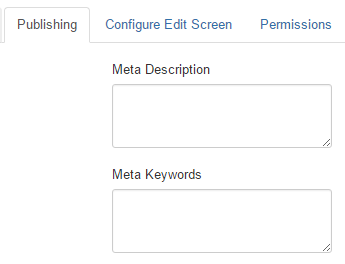
That being said, the true SEO capabilities of either platform aren’t readily apparent unless we take a look at the plugins or extensions available for the task. On WordPress’ side, we’ve got the incredibly popular Yoast SEO plugin – it’s powerful, offers lots of features, and best of all anyone can get to grips with it in a matter of minutes.
Yoast categorizes your SEO score in different areas using a traffic light system of red, yellow, or green colors. Furthermore, the plugin tells you exactly how to improve your score in each area – and if that wasn’t enough, it also rates your post’s readability.
During our testing, we found Easy Frontend SEO (EFSEO) to be the best Joomla equivalent to Yoast. It enables you to carry out many of the same tasks – such as editing your meta information – directly on the front end of your site, and also includes a handy automatic mode for generating this data without your input.
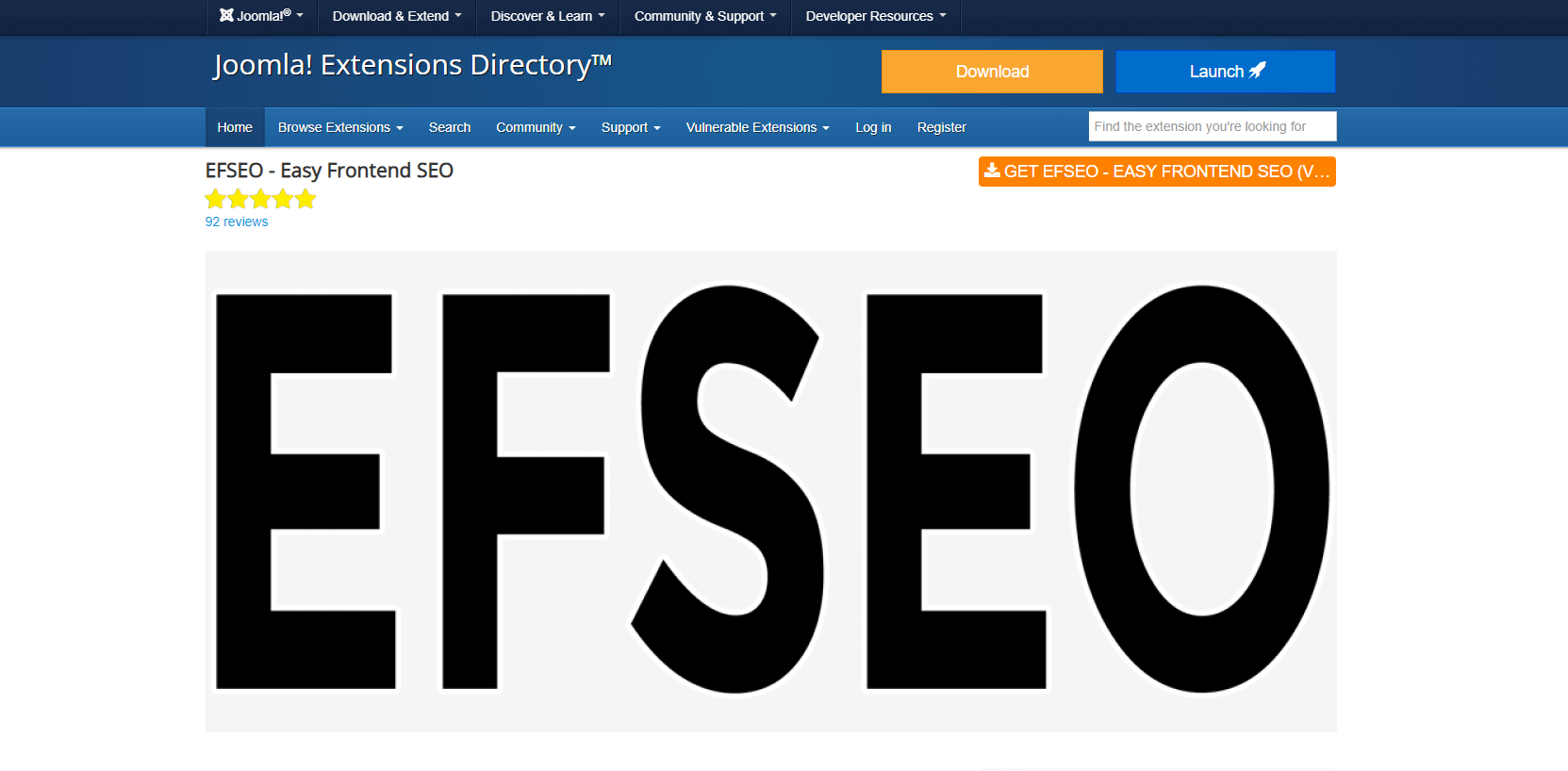
However, it’s clear that as handy as EFSEO is, it’s no match for Yoast. Due to this, round one of WordPress vs Joomla goes to WordPress.
2. Security 🔒️
When it comes to security, any system is only as strong as its weakest link – so the question is: which platform is more secure out of the box?
Due to its popularity, WordPress has a giant target on its back when it comes to security vulnerabilities. Each WordPress install is unique thanks to the thousands of plugins (there’s a plugin for everything, from making charts to using pig latin) and themes available for the CMS.
While this is a definite positive, it’s also a nightmare from a security standpoint – it’s impossible to make sure that every plugin employs proper safety standards, and remains compatible with newer versions of the platform.
Moreover, WordPress doesn’t ship with basic features such as forcing a Secure Socket Layer (SSL) connection on its dashboard – you need to modify its core files to enable it – or Two-Factor Authentication (2FA). In fact, most of its advanced security features rely entirely on plugins.
On the other hand, Joomla ships with both an option to force connections over SSL and another one for 2FA. In addition, it offers its own set of security extensions, and its developers maintain a list of those extensions with known vulnerabilities.
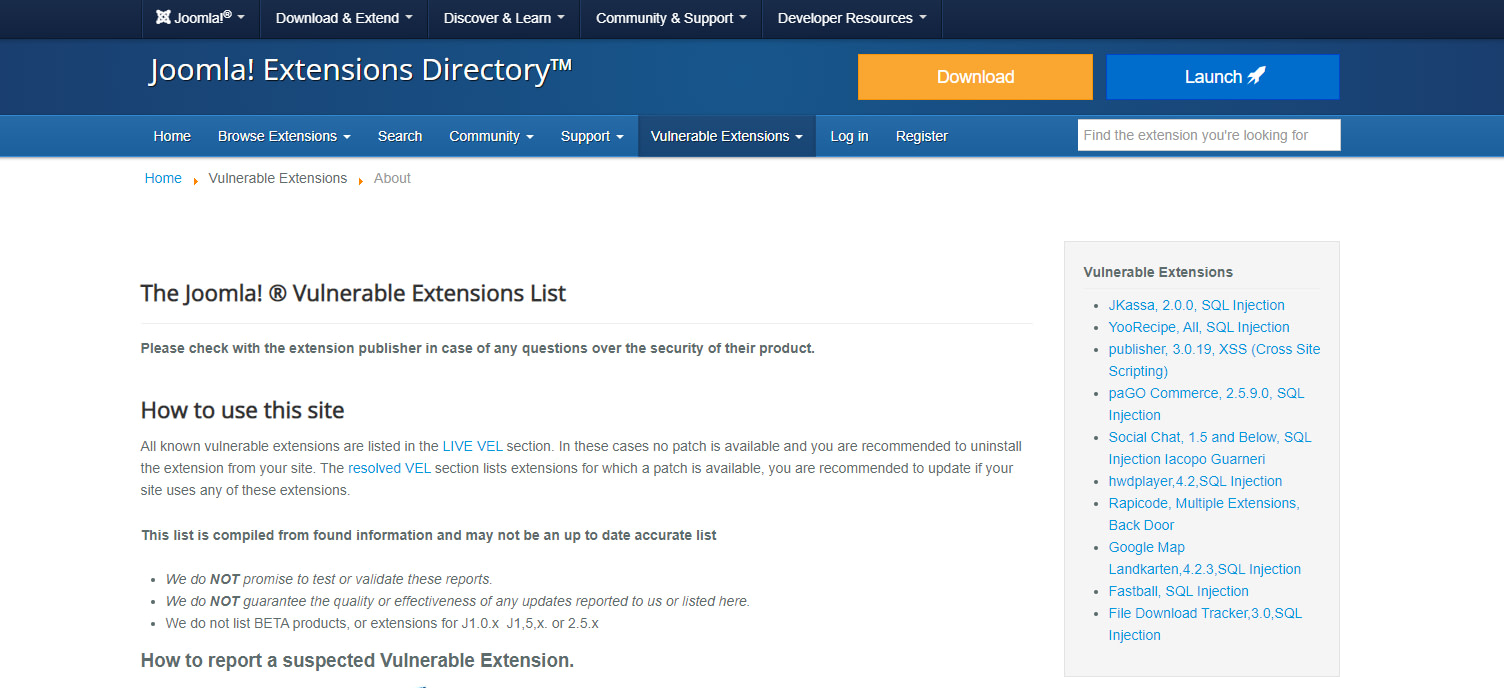
Round two of WordPress vs Joomla goes to Joomla.
3. Customization potential 🎨
We’ve already covered some ground when it comes to WordPress plugins and Joomla extensions. Both CMSs have their own roster of plugins for the most conceivable of use cases – although WordPress wins hands down due to sheer number.
However, when looking into the top plugins on each respective CMS, we feel WordPress’ offerings have a greater subjective ‘polish’. You don’t need to take our word for it – a simple side by side comparison of two tools we’ve already mentioned, Yoast SEO and EFSEO (shown in that order), reflects this:

While the latter offers just as many features as its WordPress counterpart, the former provides a better experience overall.
Moving on, when it comes to customizing your site’s style there are WordPress themes on one side and Joomla templates on the other, and the same story repeats itself here as with plugins. Not only is it easier to find high-quality WordPress themes, but they also often offer a higher level of support and a mostly better experience.
Round three goes to WordPress.
4. Content management and potential 🧑💻
Both WordPress and Joomla are complex CMSs, enabling users to create and manage just about any type of website. Although WordPress is often associated with simple blogs, it’s also a great solution for landing pages and even more complex sites.
On the other hand, Joomla is renowned for its complexity – although it does offer some fantastic documentation. A site built with Joomla can evolve into anything it wants, but the learning curve is much steeper for users with no experience in web development.
Despite being equal when it comes to sheer potential, it’s fair to say that WordPress enables its users to manage their content with relative ease. Anyone can install the platform and pick up how to create posts, pages, or custom post types within minutes, whereas Joomla is less forgiving.
Taking all of this into consideration, we must award the final round of WordPress vs Joomla to the former, which gives the overall contest to WordPress!
Conclusion 🧐
In some ways, Joomla is more flexible than WordPress. It offers an incredibly customizable system that can take almost any shape you want, and it enables you to implement a lot of small customizations without relying on extensions.
However, between WordPress vs Joomla there can only be one winner, and the crown must go to WordPress.
It beats out Joomla when it comes to SEO, customization possibilities, and content management – so the choice is clear. Furthermore, WordPress is just plain simpler to pick up for new users, and its popularity gives it the added edge of providing users with a better support structure – it’s the cherry on top of the WordPress sundae.
Again, if you want to learn 👨🎓 how to build a website on WordPress step-by-step, here’s our guide.
If you’re looking for 🔎 an affordable WordPress host with easy-start features, check out Bluehost. Bluehost will take care of installing WordPress for you and then also make getting started with the platform easier after the installation.
Do you agree with our assessment on the WordPress vs Joomla debate? Share your thoughts with us in the comments section below!



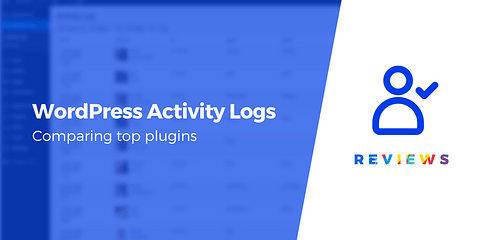
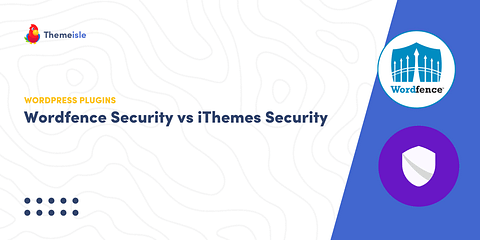

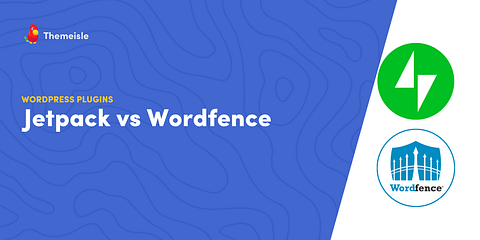
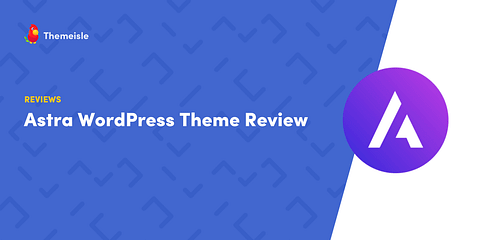
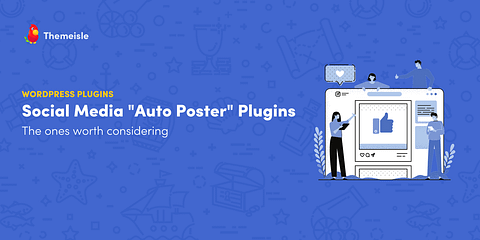


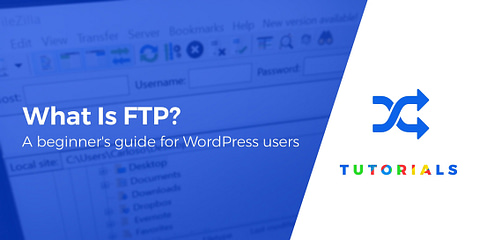

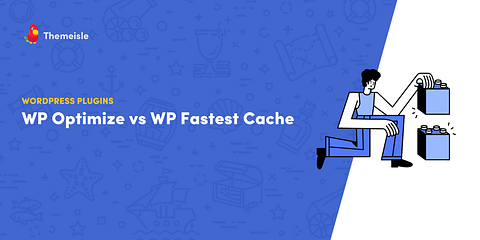
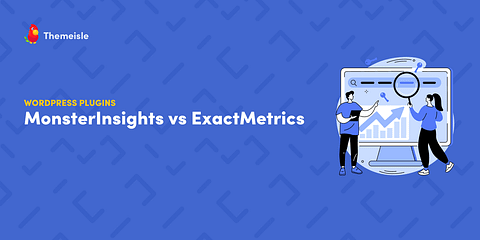
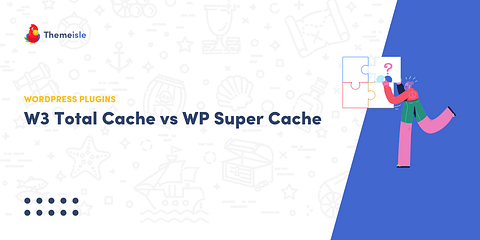



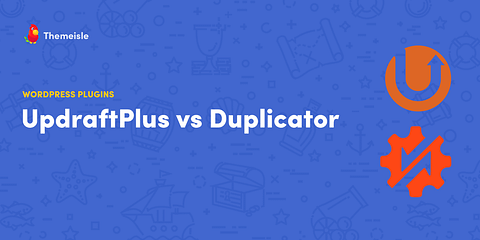
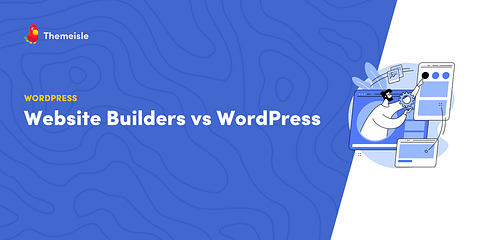
I have two WordPress sites along with a shop/cart, and a friend asked me to install and manage Joomla in place of her wordpress instead on her non profit site, oh boy what a nightmare that was! You set the thing up and log in to basically a blank screen, there’s no “front end” or landing page like there is with WordPress, the moment you activate it there’s a freaking landing page you can SEE and edit. Next she had me install the security and backup, well both of them failed and had to be redone twice, then she had me test a backup and recover it, that failed the first try. She then decided the easiest way to migrate the existing content was to use a migration service, I think that was $40, dod that, and every page had left over code from WordPress plugins, we spent the better part of a DAY on this, the whole thing was just horrible from A to Z and we STILL don’t have a working site- all the links like to the registration and log in pages point to the OLD WordPress urls and we haven’t found a way to change those… Read more »
Both are different, Basically we prefer WordPress because of it simplicity & easy to update for smaller content website. For big websites we prefer Joomla. Joomla doesn’t need any extra plugins like Yoast in WordPress.
I use Joomla for government sites that are too large and complex for WordPress. We have numerous contributing editors that maintain their sections with daily updates and we find Joomla simple to use and very robust.
There are tons of QuickStart Joomla templates, with InspireThemes having some of the best. With these themes you can be up and running in an hour or less. SiteGround has a one-step Joomla installation application that makes the installation process a breeze.
There are numerous and extremely helpful YouTube video tutorials for Joomla that will guide you and your project so you can become a true Joomla expert. Great free resources and many free Joomla extensions too!
WordPress Only
I would add that Joomla! has custom fields for content and users. Custom fields allow you to create custom post types – a la WordPress. The user custom fields are great when hooking up to things like LDAP that have user fields that need mapping.
I’ve been using Joomla back from the days it was Mambo and WordPress since version 1.x and I favor Joomla in most cases. The problem with comparisons like this is that it picks a limited set of features, which can favor to one side. To name a few features in which Joomla is superior: Out of the box has a fine grained acl & user(group) management. Where WP only distincts between authors, editors and admin, and in most cases when you want a user to do things beyond basic writing of simple articles (especially when you’re using plugins), you need to make him admin and give him full control. In Joomla you can create your own usergroups and give accessrights to almost anything, like plugins., tools, widgets. So Joomla is more suited for sites with large amounts of users, where WordPress is more targeted at single user of small group sites, if you want to go beyond the basic blogging. Joomla is mulitlingual. Yes WP does come in multiple languages, but out of the box you can only use one language at the time on your site. In Joomla you can offer the site to your visitors in various languages… Read more »
I’ve been using Joomla since it was Mambo, and WordPress since its conception and I can say that I totally agree with all of them. WordPress is better than Joomla when it comes to blog, a newspaper or magazine type of website (even though Joomla can also handle that), however, for a professional business presence (and much more), I recommend Joomla. For an eCommerce website, I recommend Magento (latest version), and so on.
Thanks for this inspiring comment. I totally would like to use joomla, all the way!
Many of my friends told me to use joomla, they say it’s easy to use, easy to manage. But I was reading some article that WordPress may only be good for a read-only like article, unlike in joomla, you can use it as a marketing tool using the net.
One thing you left out that is a big one is potential for multi user sites. While you can get adequate plugins for WordPress to take care of this, if I have a client that wants a site with a members only log-in – Joomla wins every time for me. This functionality is native to Joomla and does not exist in wordpress and it Joomla works far better for this than WordPress plugins do. This is a big one that you may have missed in your comparison.
I use both these platforms in developing client sites, and please don’t get me wrong – I love them both – but when it comes to having a members area – I will use Joomla every single time.
word press sucks this is just publicity
Yes WP is good for small site with limited number of visitors and limited functions, still as you said needs lot of plugins to work. from the other hand WP and Joomla are not in the same category to be compare, Joomla is a CMS and WP is a Bloging platform and in the other side we have Drupal (bigger brother) which is a Framework CMS.
so i don’t know why people try to compare them. A truck and a racing car, both can move someone from A to B but do we have to compare them?? or capabilities of them are so far to compare !
Well said. Like I always say “Use The Right Tool, For The Right Task”, for they are all good depending on the task at hand.
I have big experience (over 11 years) with the both CMS platforms, Joomla is really superior, more secure, easy to use, out of box customization and much more stable.
I don’t understand why some people are writing articles full with lies for Joomla.
It is some kind of negative marketing complaint against Joomla!
I myself read those negative articles about Joomla and I even had someone contact us for another website using Joomla and started talking about design and SEO. Caller thought that the other website in question was not a website of another service we offer related to computer repair. He started talking about the cons of Joomla and the Pros of WordPress. Then I asked him to explain those cons and I called out his lies and he actually ended up asking me to help him with his website and the design and SEO problems the site was facing. So I asked him why was he trying to convince me that WordPress was better than my Joomla based website (computer repair services) and why every site he designed were WordPress based? His answer was “I am only familiar with WordPress’. So I then told him ‘If you are not familiar with a product, you should not compare them’.
There was a time with Joomla when updates required moving lots of files by ftp. No more. Updates with v. 3+ could not be made easier unless they were completely automatic in the cloud like Android. Fortunately, I think, one still has to choose to update the extensions, but many are the simple click to update variety. My host, Siteground, automatically updates new versions of Joomla.
If WordPress is still easier, I’d be tremendously surprised.
Yes Indigo i do agree with you, It was a major issue when we get the update on joomla, but not with the wordpress, it get all the update automatically with no hassels..
Cheers
Team
http://www.nxsearch.com
Hi..
We dont have a good experience with Joomla, but as our development team switch to WordPress, all work goes smooth, In terms of security you can have salt and other third party security services who can protect your site.
I recomment 90% wordpress
Cheers
http://www.nxsearch.com
My customers don’t have to hire a third party to secure their site. It is a matter of installing a Good component “Admin Tool’ and configure it (developer is very good at helping) and you are good to go. I recommend Joomla 100%, and WordPress 100% depending on the type of site you’re planning to have.
This was the main reason I left Joomla years ago and moved over to WordPress. The Joomla upgrades crashed my site numerous times and I never got this with WordPress. Been using it now for 8 years and never looked back!
Joomla did break with upgrades from version 1.0 to version 1.5, then from 1.5 to 2.5 and then with 3.5. Version 3.5 is sublimely easy to update and they’ve done all the extension breaking architectural changes already. WordPress will still need to undergo this architecture breaking change if it hopes to become a fully object-oriented CMS.
I’m glad I stuck with Joom la through all the pain, it really is a sublime, technically superior solution. The amount of times I have had to wade into code to do stuff that is a supersimple in Joomla is innumerable. Joomla is simply way better than WordPress in terms of its structural superiority and the way everything works together. Templates, Modules, Plugins and Components…it’s brilliant the way they all work together and you have granular control over it all.
Even the menu system in Joomla is light-years ahead of WordPress.
I develop for both Joomla and WordPress…I really know what I’m talking about here.
I’ve had the exact opposite experience with the two CMS platforms. I update my clients WP plugins one at a time because of bad updates. Most go well, but if you have one that has an issue, your site will brick. Had to turn off update checking on a few plugins.
First….I’ve been using WP for about 6 years and Joomla over 10 years. Cannot say much about SEO because I find that if you stick with the basics, you will be fine. But if you are one who needs SEO, you are looking at a full time job, regardless of the platform. But let’s jump to Security. Joomla has by far the better security compared to WordPress, and especially if you add in an extension like AdminTools pro (which I used). The developer seriously knows his security and has become part of the Joomla team. We often see more news posts about security and other vulnerabilities with WordPress compared to Joomla. Then on WP, you have to deal with a LOT of plugin developers who have bad habit coding skills and do not focus on standards and requirements when creating their plugins, Third party plugin developers is a big problem for maintaining security standards. In Joomla, it’s a different story, they have strict guidelines for extension developers. Now for Customization. To talk about plugins vs extensions is not not accurate with regards to customization. Customization to me is customizing and modifying the look and feel of your template/theme. So let’s… Read more »
Thank you for the detailed input. I must concur. Joomla wipes the floor with WordPress in terms of its supreme technical structure, its use of overrides, its built-in functionality and its general extensibility without having to touch code.
The myth of Joomla complexity has become a self-perpetuating lie that is almost like religious dogma. The truth will set you free!
Sure, that’s why two of use spent an entire day on her new Joomla site and it STILL was screwed up, and that was even after using a migration service to migrate the WordPress content- hint- that was a near total FAIL and waste of her $40 and it still doesn’t work right.
Ive set up lots of WordPress and forums- “Simple Machines”, etc but Joomla SUCKS inside and out of the “box”!
Or start the conversation in our Facebook group for WordPress professionals. Find answers, share tips, and get help from other WordPress experts. Join now (it’s free)!